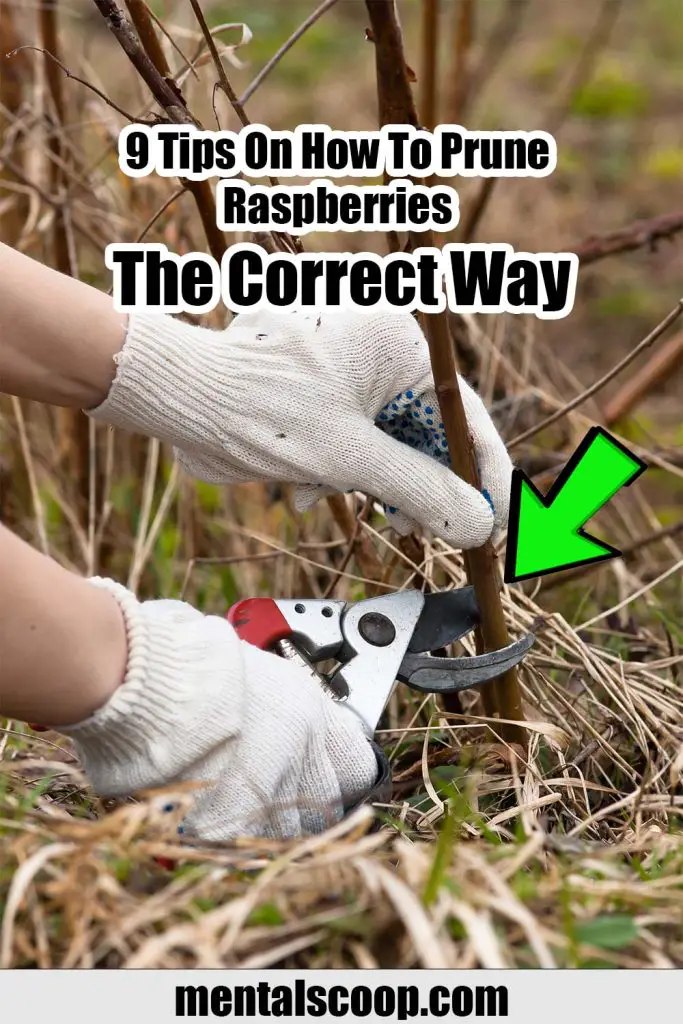
Raspberries are a delicious and nutritious fruit that can be enjoyed fresh or used in various recipes. However, to ensure that your raspberry bushes continue to produce fruit and remain healthy, it’s essential to prune them regularly. Pruning is the process of removing dead or damaged canes and thinning out excess growth to promote new growth and fruiting. In this article, we will discuss nine tips on how to prune raspberries the correct way.
Understand The Types Of Raspberry Bushes
There are two types of raspberry bushes: summer-bearing and fall-bearing. Summer-bearing raspberries produce fruit once a year, in the summer. Fall-bearing raspberries, also known as everbearing, produce fruit twice a year, once in the summer and again in the fall. Knowing the type of raspberry bush you have will determine when and how you should prune them.
Prune At The Right Time
The timing of pruning raspberries depends on the type of raspberry bush you have. For summer-bearing raspberries, pruning should be done after they have finished producing fruit, typically in late summer or early fall. For fall-bearing raspberries, prune the canes that produced fruit in the summer and leave the new canes for a fall crop.
Remove Dead or Damaged Canes
Dead or damaged canes should be removed as soon as possible. Dead canes can spread disease to healthy ones, and damaged canes can inhibit growth and fruiting. Use sharp and clean pruning shears to cut off any canes that show signs of damage or disease, such as discoloration or cracking.
Thin Out Excess Growth
To promote healthy growth and fruiting, thin out excess growth by removing any weak or thin canes that are not producing fruit. This will allow the plant to focus its energy on producing healthy and strong canes that will produce fruit in the future.
Remove The Oldest Canes
Raspberry bushes produce fruit on two-year-old canes. To ensure that your raspberry bushes continue to produce fruit, remove the oldest canes that have already produced fruit. This will allow the newer canes to grow and produce fruit the following year.
Cut At A 45-Degree Angle
When pruning raspberry bushes, cut at a 45-degree angle to ensure that water runs off the cut and does not collect on the surface. This will help prevent disease and infection.
Disinfect Pruning Shears
Before and after pruning, disinfect your pruning shears to prevent the spread of disease. Wipe the blades with rubbing alcohol or a disinfectant solution, and let them dry before using them again.
Train The Canes
Raspberry bushes should be trained to grow up a support system, such as a trellis or fence. This will help keep the fruit off the ground and make it easier to harvest. When pruning, train the canes by tying them to the support system with string or plant ties.
Clean Up Debris
After pruning, clean up any debris or fallen leaves around the raspberry bushes. This will help prevent the spread of disease and pests.
Overall
Pruning raspberry bushes is an essential part of maintaining their health and productivity. By following these nine tips, you can ensure that your raspberry bushes continue to produce fruit and remain healthy for years to come. Remember to prune at the right time, remove dead or damaged canes, thin out excess growth, remove the oldest canes, cut at a 45-degree angle, disinfect pruning shears, train the canes, and clean up debris. With proper care, your raspberry bushes will provide you with delicious fruit for years to come.

More interesting articles you may be interested in reading:

How To Remove A Tree Stump Painlessly
10 Vital Home Maintenance Tasks You’ll Regret If You Forget
See How Much Propane Is Left In A Tank With No Gauge
Thanks for reading and be sure to share this info with your friends using the social share buttons below.
Talking about social stuff, consider liking our Facebook page to keep up to date with our articles. Check out our other articles for more mental scoops!
